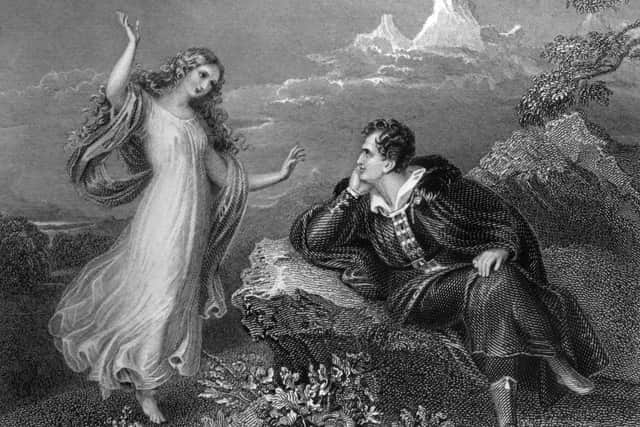Lord Byron and friends caught up in fracas with Italian dragoon (1822)
and live on Freeview channel 276
It read: “On the 24th of March last, as Lord Byron, with four other English gentlemen, followed by a servant, were returning on horseback to Pisa, and were within a quarter of a mile of Porta le Piaggie, they were overtaken by a man on horseback, in the dress of n dragoon, riding at full gallop, who rushed through the party with speed, so as to endanger their safety.
“One of the gentlemen’s horses was so excited, that he with difficulty could restrain him, and lost his hat; Lord Byron (followed by the rest of the party, and the servant) conceiving the person to have been a commissioned officer (he proved to be only a sergeant-major) pursued him at speed, and overtook him just at the Porta le Piaggie, where there is a guard.
Advertisement
Hide AdAdvertisement
Hide Ad“They rode up to him, and asked his name, Lord Byron, at the same time, offering to him his card. The reply consisted of gross abuse, and threats of personal violence, accompanied with the act of laying his hand on his sword.


“This took place in the presence of some of the guard, one of whom called out to the dragoon to give them in charge to the guard – on which he called out to the guard to arrest the whole party.”
The report continued: “Lord Byron, on this, put spurs to his horse, and was followed by one of his companions. His Lordship rode directly to his house, and sent his secretary to the police, to acquaint them with the outrage; and, without dismounting, returned towards the guard.
“On his way he met the dragoon, who rode up to his Lordship, and asked him, in an insulting manner, if he was satisfied. Lord Byron replied he was not satisfied, and required to know his name.
Advertisement
Hide AdAdvertisement
Hide Ad“The other stated it to be Sergeant-Major Massi. At this moment a servant of Lord Byron came up to the dragoon, and laid hold of the bridle of his horse, which Lord Byron desired him to release. The dragoon put spurs to his horse and proceeded along the street by the Aono, through a number of people, who were collected near the Casa Danfranchi.
“There, it appears, the dragoon received a wound; from whom is uncertain. Several have been arrested on suspicion, amongst the rest one of Lord Byron’s servants.”
The reported added: “The story of Lord Byron being arrested is a pure invention; it has never been pretended that his Lordship, was either present at, or had in any way instigated, or countenanced any attack on the dragoon, who is, however, beyond all danger.”
The report concluded: “The conduct of the soldiers is at present referred to the civil tribunals. Lord Byron and the English gentlemen made a report and deposition to the governor of Pisa, and through the medium of Mr Dawkins, the English Charge d’Affaires at Florence, have demanded satisfaction for the injuries they have received. The Tuscan Government have intimated, they do not entertain the remotest suspicion that Lord Byron was in any manner cognisant of the attack on the dragoon, although his Lordship’s servant is necessarily retained till the affair is investigated.”
Comment Guidelines
National World encourages reader discussion on our stories. User feedback, insights and back-and-forth exchanges add a rich layer of context to reporting. Please review our Community Guidelines before commenting.